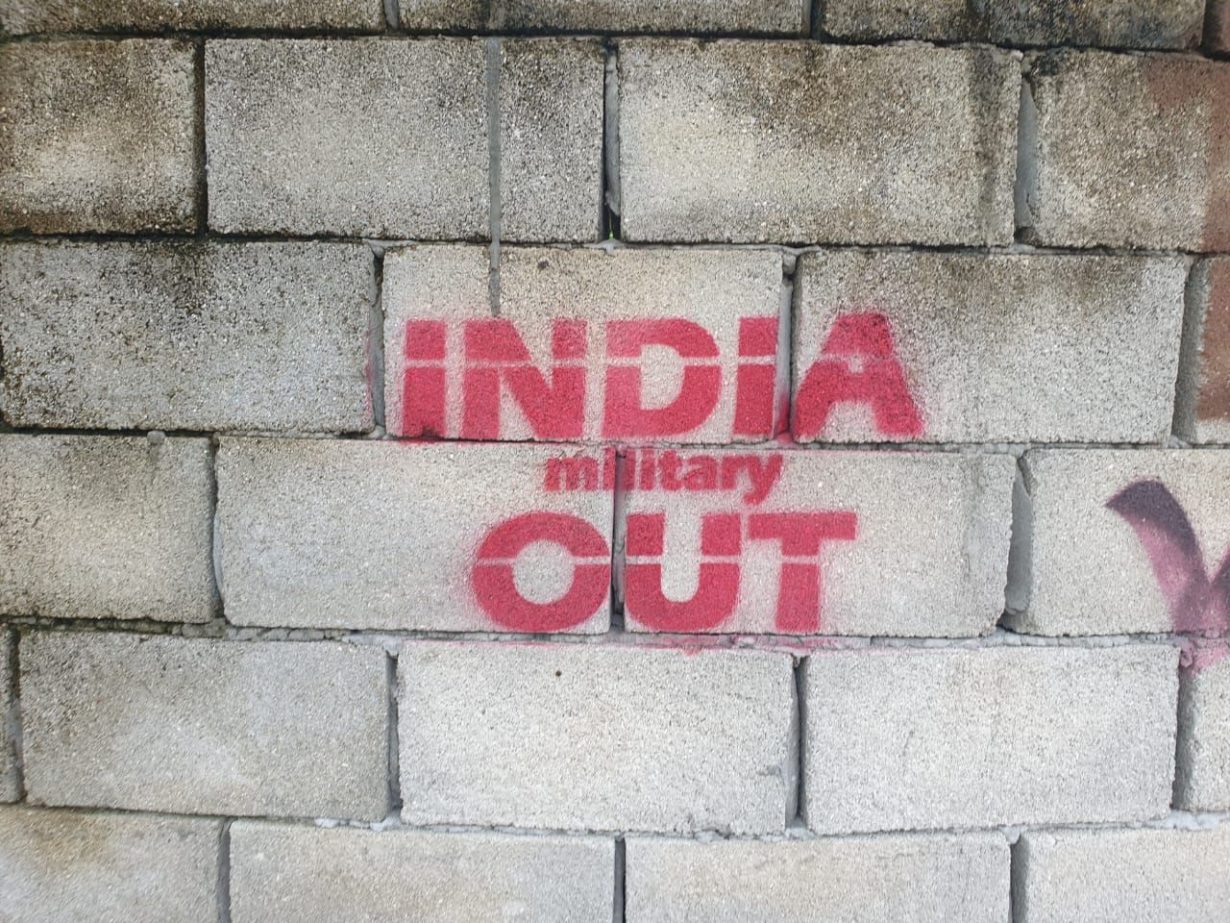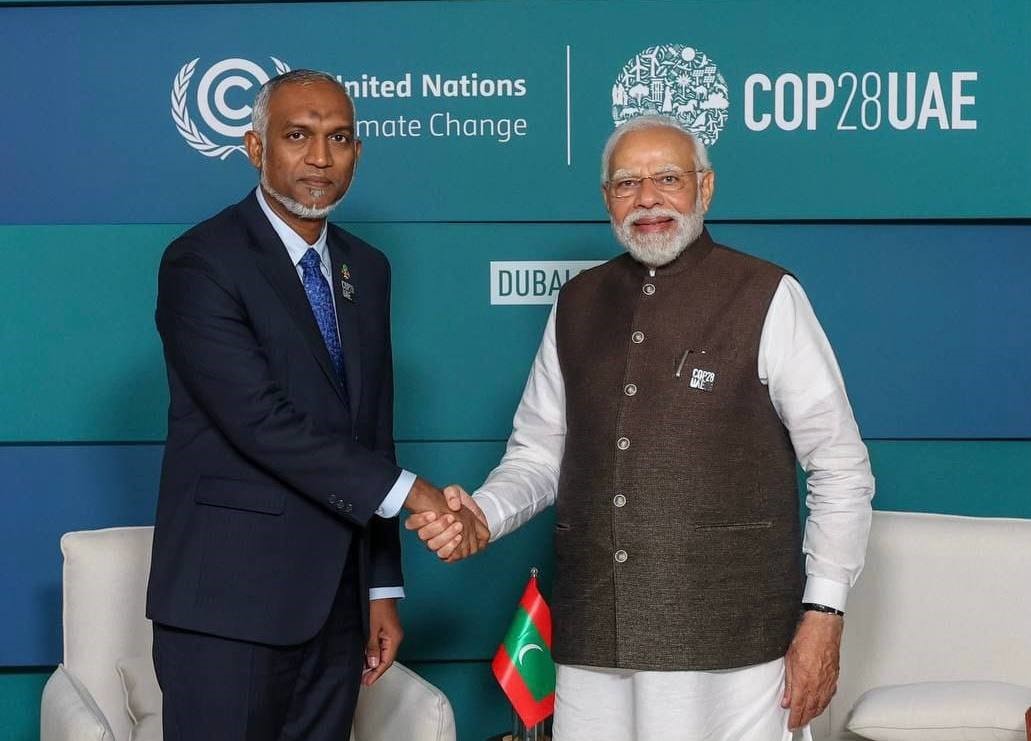As Indian Finance Minister Nirmala Sitharaman unveiled the 2024-25 interim budget, one notable aspect that captured the attention of many people was the substantial developmental assistance committed to India’s neighboring countries.
This underscores New Delhi’s renewed dedication to fostering collective regional development and inclusivity. Among these commitments, the developmental aid pledged to the Maldives stands out, reaching nearly INR 600 crore, positioning it as the third-highest allocation after Bhutan and Nepal, respectively.
In the previous financial year (2023-24), India had committed INR 400 crore for this Indian Ocean archipelago nation, even though it ultimately spent over INR 770 crore, underscoring New Delhi’s unequivocal commitment to supporting its neighbors.
While some may perceive a 22 percent reduction in budgetary allocation for Maldives compared to the actual spending of INR 770 crore in the previous fiscal year and link it to the strained ties between New Delhi and Male, a closer look reveals a more nuanced reality.
When juxtaposed against the previous budget estimates for the 2023-24 fiscal year, the proposed allocation for the Maldives in the 2024-25 budget reflects a significant increase of nearly 50 percent.
Regarding the percentage share of India’s developmental aid to its other countries, the share of Maldives has witnessed a significant increase since 2018, when it was recorded at 2.1 percent, to 2024, where it stands at around 6.84 percent.

India’s commitment to developing its neighbors emphasizes a no-holds-barred approach, as demonstrated by its willingness to go beyond its initially committed allocations.
However, a careful re-assessment of this diplomatic strategy is warranted in the light of evolving geopolitical churnings, particularly with countries like Maldives that have of late exhibited anti-India sentiments within the upper echelons of its political leadership.
It may be noted that its current leader, President Mohamed Muizzu, who is a close associate of corruption indicted and pro-China former president Abdullah Yameen, has made his political fortune on the plank of India’s neighborly dominance and campaigned on the pledge to drive out a small contingent of Indian defense personal present in the Maldives at the invitation of Male itself and under a defense cooperation agreement.
For decades, India has provided Male with consistent and generous developmental assistance even when it emerged from the shadows of British colonialism in the 1950s and 1960s with limited resources.
It has been the first responder to the events and calamities in this Island nation, be it the 2004 devastating Tsunami or COVID-19 or still any political contingency such as the 1988 coup attempt where any government has sought neighborly support for the security and stability of the country.
Despite India’s consistent and generous assistance and insistence on the policy of mutual reciprocity, the current Maldivian leadership has displayed a notable anti-India stance in recent times.
The Maldivian leadership cannot overlook India’s historical role in their country’s developmental trajectory and equally comprehend that such support comes with a pragmatic expiration date.
While India has manifested its commitment to regional development by pursuing the ‘Neighbourhood First’ Policy, it needs a constructive and cooperative reciprocation, and the Maldives, in particular, need to recognize the symbiotic nature of this relationship.
A slight rewind tells us how India has been Maldives’ one of the largest bilateral partners over the years, providing it with substantial developmental assistance in the form of grants, aid, and credit lines, apart from investing time and resources in bolstering its security architecture.

In recent years, New Delhi provided Male with a “US$1.4 billion financial package in the form of budgetary support (US$50 million), buying of treasury bills (US$ 150 million), a currency swap (US$400 million) and concessional LoC (US$ 800 million) to fulfill the socioeconomic development program of the Maldives.”
As recently as 2021, India extended a US$50 million Defense Line of Credit and a US$40 million Sports Line of Credit to the Maldives, aside from a financial line of credit of USD 100 million in 2022, to assuage ramifications of the COVID-19-induced global economic downturn.
The no-strings-attached role of India as the first responder to Male and the proponent of mutual reciprocity and symbiotic relationship was first demonstrated when New Delhi withdrew its military on its own from the archipelago after assisting in failing the coup attempt against the government of Maldives back in 1988.
As per India’s Ministry of External Affairs (MEA), New Delhi’s commitment to Male’s security is demonstrated by the fact that over 70 percent of training requirements of the Maldivian defense forces are managed by India either in the country itself or by opening the doors of its multiple military academies.
India has trained over 1,400 personnel from the Maldivian National Defence Force during the last ten years, making them integral parts of multiple maritime activities like “joint EEZ patrols, anti‐narcotic ops, SAR, sea‐rider program, HADR exercises, adventure camps, sailing regatta,” apart from providing it “with air assets for air surveillance, MEDEVAC, SAR, Helo borne vertical insertion capability.”
As the geopolitical dynamics in the Indian Ocean region are evolving rapidly, with multiple stakeholders vying for influence, including China, Maldives, as a sovereign state, must balance autonomy with the security considerations of itself and its neighboring states.
It cannot present itself as a base to the hostile forces in a region that has historically been the affair of Indian Ocean littoral states, including India and Maldives.
As such, the current Maldivian leadership, which has demonstrated a preference for Beijing in its engagements, necessitates an understanding that outreach to powers like China should not overlook the security concerns of its significant neighbor, India, whose regional security considerations are “intricately intertwined” with “the strength and stability of the Maldives’ maritime domain.”
While the world may know Maldives as one of the top tourist destinations and tourism as its economic backbone, being a “major source of foreign exchange earnings and government revenue” while directly accounting for over 75 percent of the country’s Gross Domestic Product (GDP), it has been achieved with New Delhi’s significant role which helped establish its tourism infrastructure and bringing it on the global tourism map.
Even in terms of tourist arrival, India has consistently been one of the largest sources of tourist footfall. For instance, despite the COVID-19 pandemic, nearly 291,000 Indians visited Maldives in 2021, contributing the most significant number of tourists to Maldives with a share of 23 percent.
This tourist demographic has drastically shifted following distasteful comments by some members of the new Maldivian government of Mohamed Muizzu against Indian Prime Minister Narendra Modi.
As per media reports, the number of Indian tourists going to Maldives has reduced so drastically that India dropped from 3rd position to 5th position within merely three weeks.
Given the overwhelming dependence of Maldives on the tourism sector, this significant drop in tourist arrivals will have major ramifications on the people’s daily earnings and the country’s national economy, something they can hardly afford in times of post-COVID-19 financial distress.
Both the Maldivian citizens and the broader political leadership must recognize that the current trajectory of their foreign policy, primarily geared towards adversely impacting India’s interests as well as the short-term interests of the current ruling party, will inevitably result in self-harming consequences for Maldives.
While India’s developmental assistance is rooted in a genuine desire for regional well-being, injecting a sense of realism into diplomatic engagements is essential.
The anti-India sentiments expressed by some leaders in Maldives highlight the need for a pragmatic evaluation of the bilateral relationship. New Delhi must remember its commendable generosity should not be taken for granted.
The Maldivian leadership, in turn, must recognize the symbiotic nature of the relationship and refrain from exploiting India’s goodwill for short-term political gains.
India’s commitment to regional development should not be seen as an open-ended offer by anyone. While New Delhi should always be willing to extend a helping hand and walk the extra mile through assuaging the concerns of its neighbors and partners, it cannot and should not tolerate any devaluation of its efforts and should exact mutual reciprocation in terms of cooperation in securing their interests.
The expiration date on such generosity should be foregrounded and made explicit. In the case of the Maldivian leadership, it must be understood that sustained anti-India posturing will inevitably strain the bilateral relationship. The ball rests in the court of Maldives and Maldivian people.
- NC Bipindra is a 30-year veteran in journalism specializing in strategic affairs, geopolitics, aerospace, defense, and diplomacy. He has written extensively for the Times of India, New Indian Express, Press Trust of India, and Bloomberg News. He can be reached at ncbipindra (at) gmail.com
- Follow EurAsian Times on Google News




